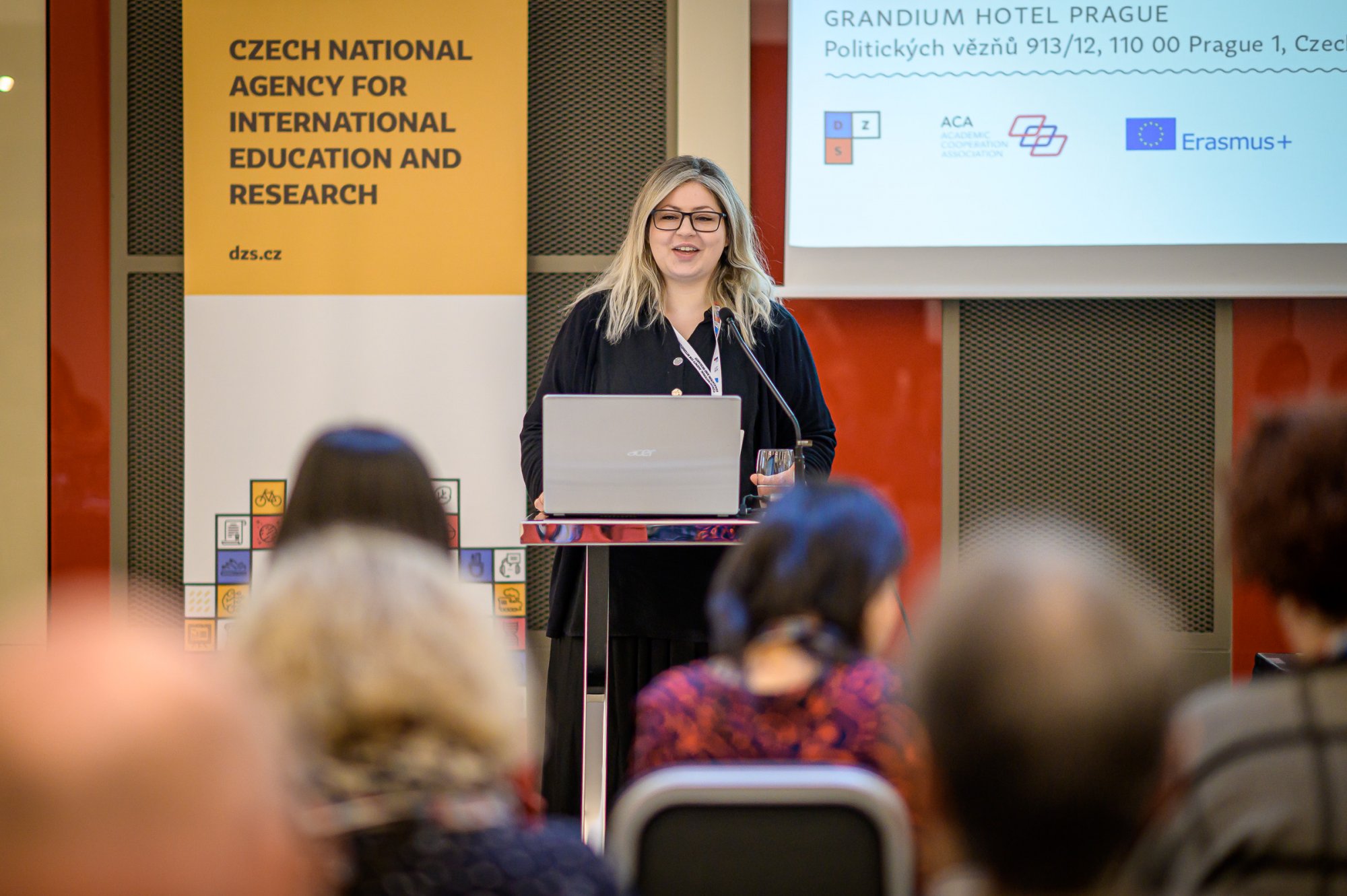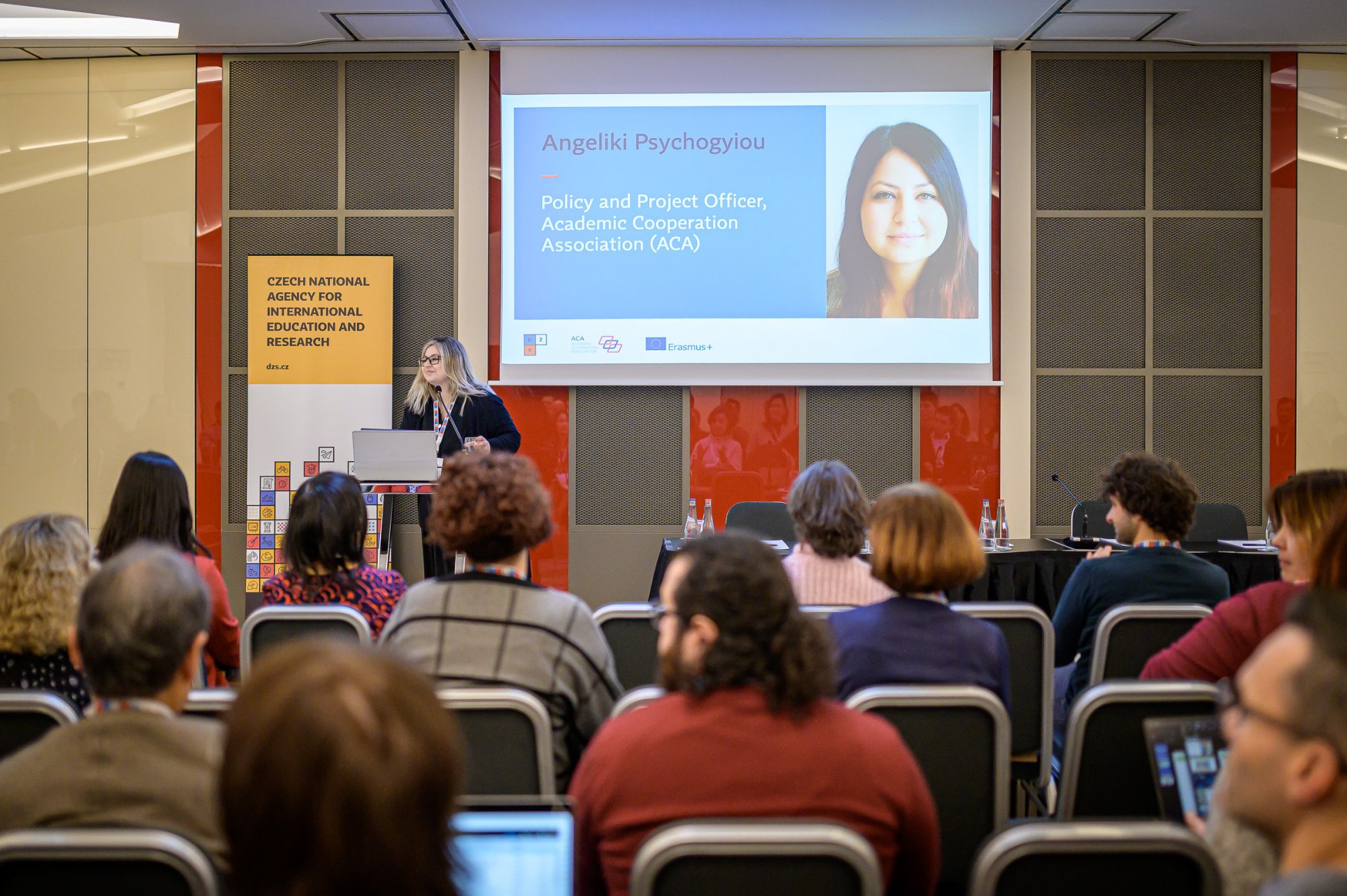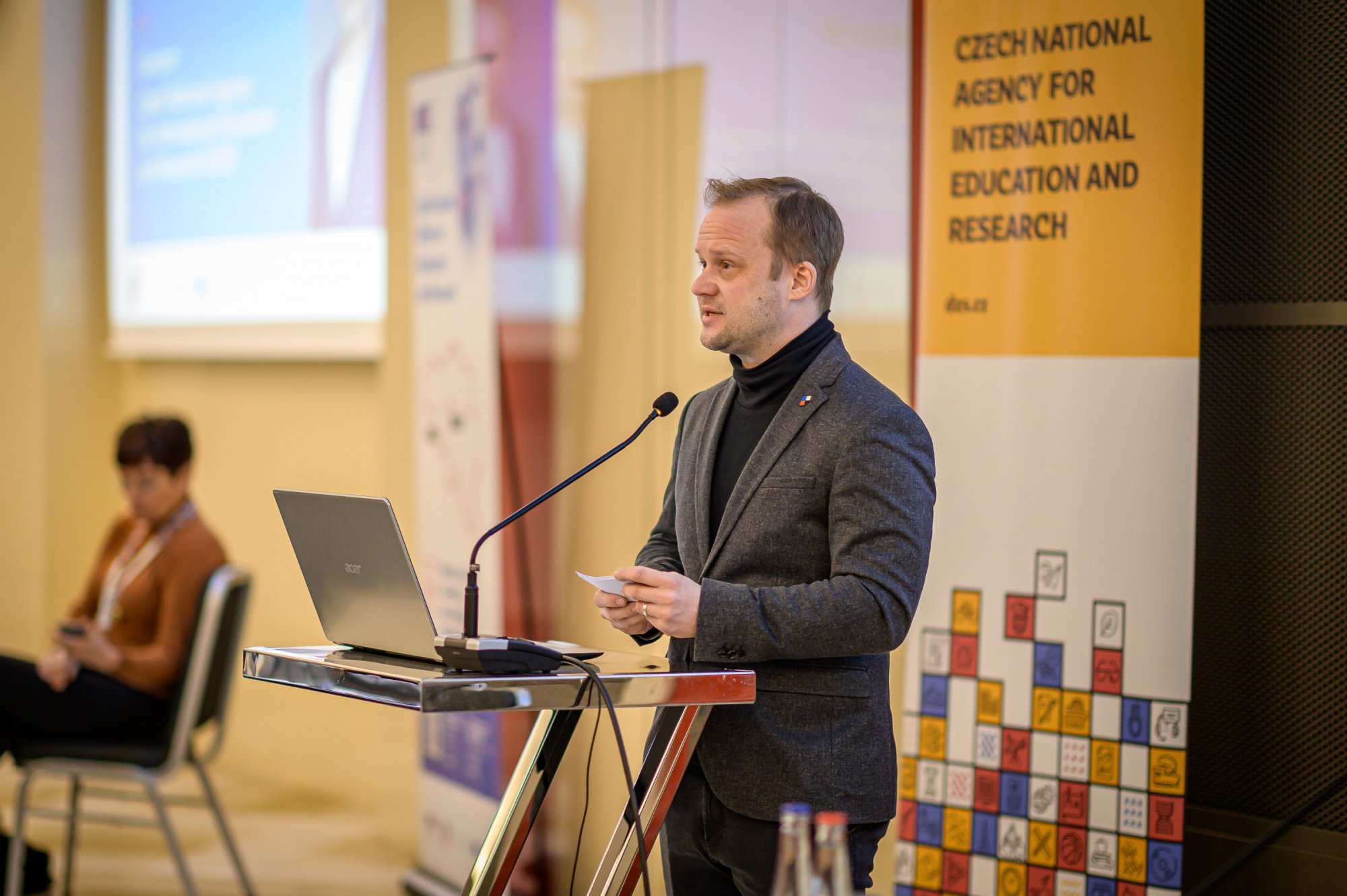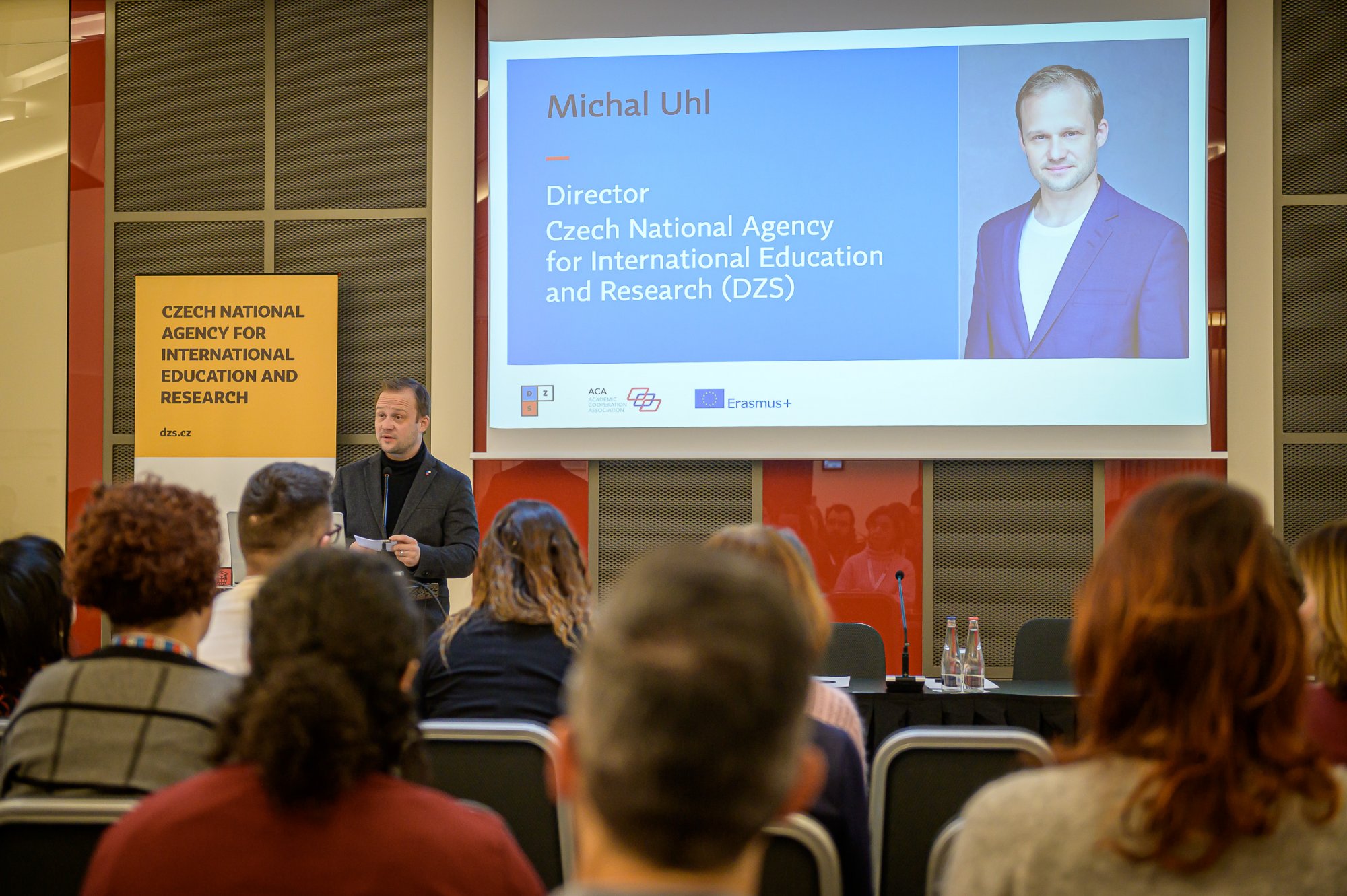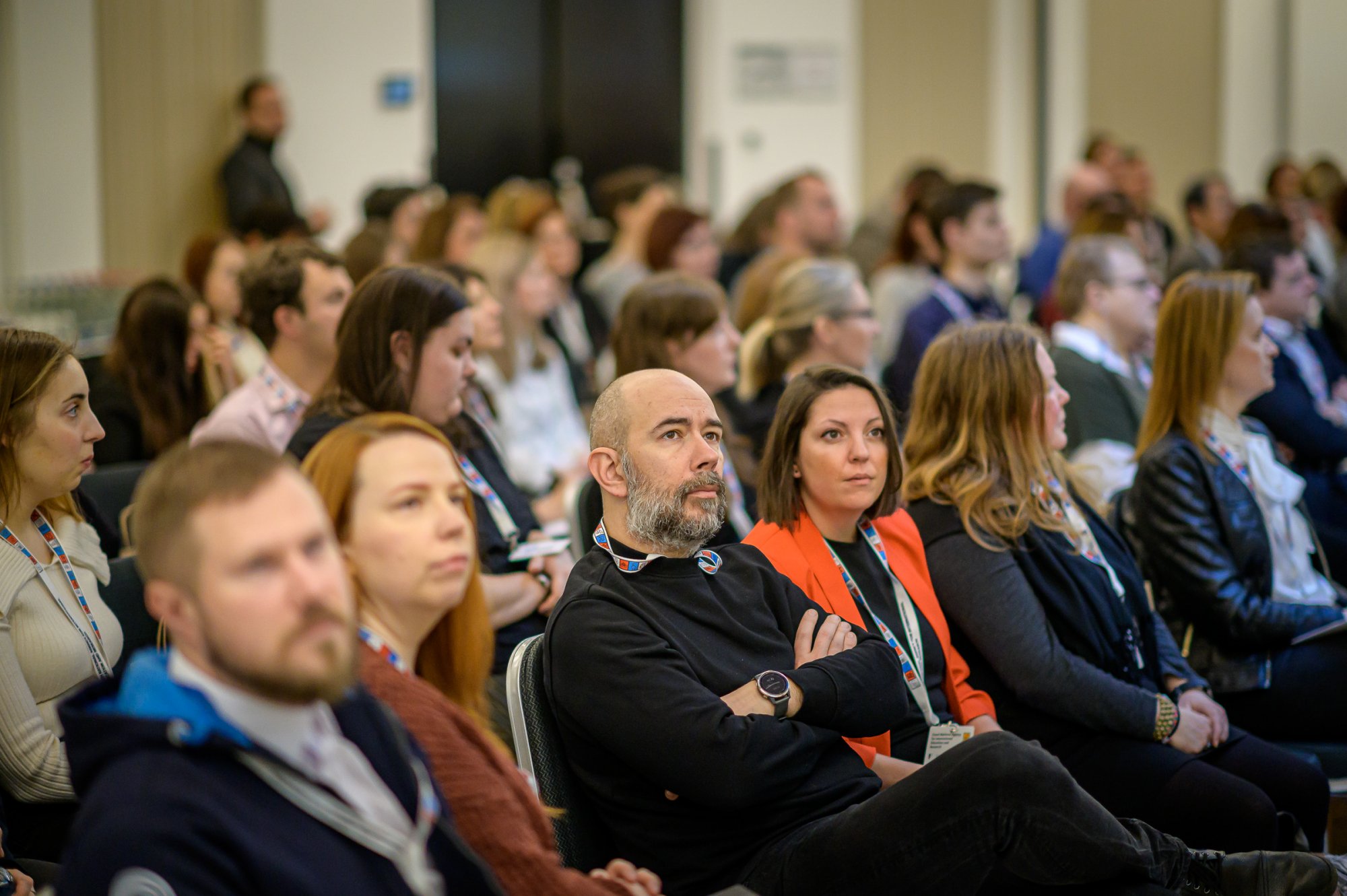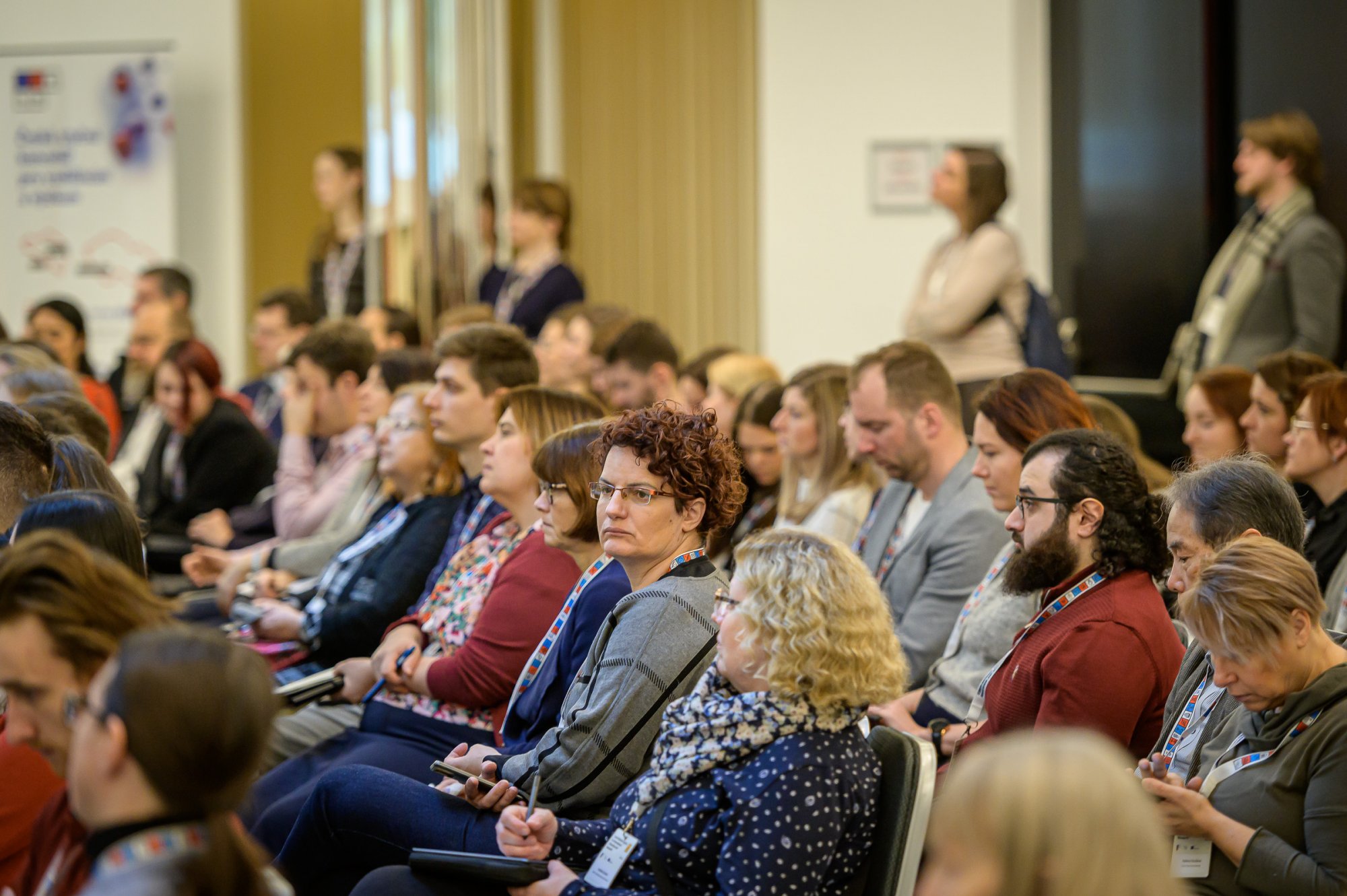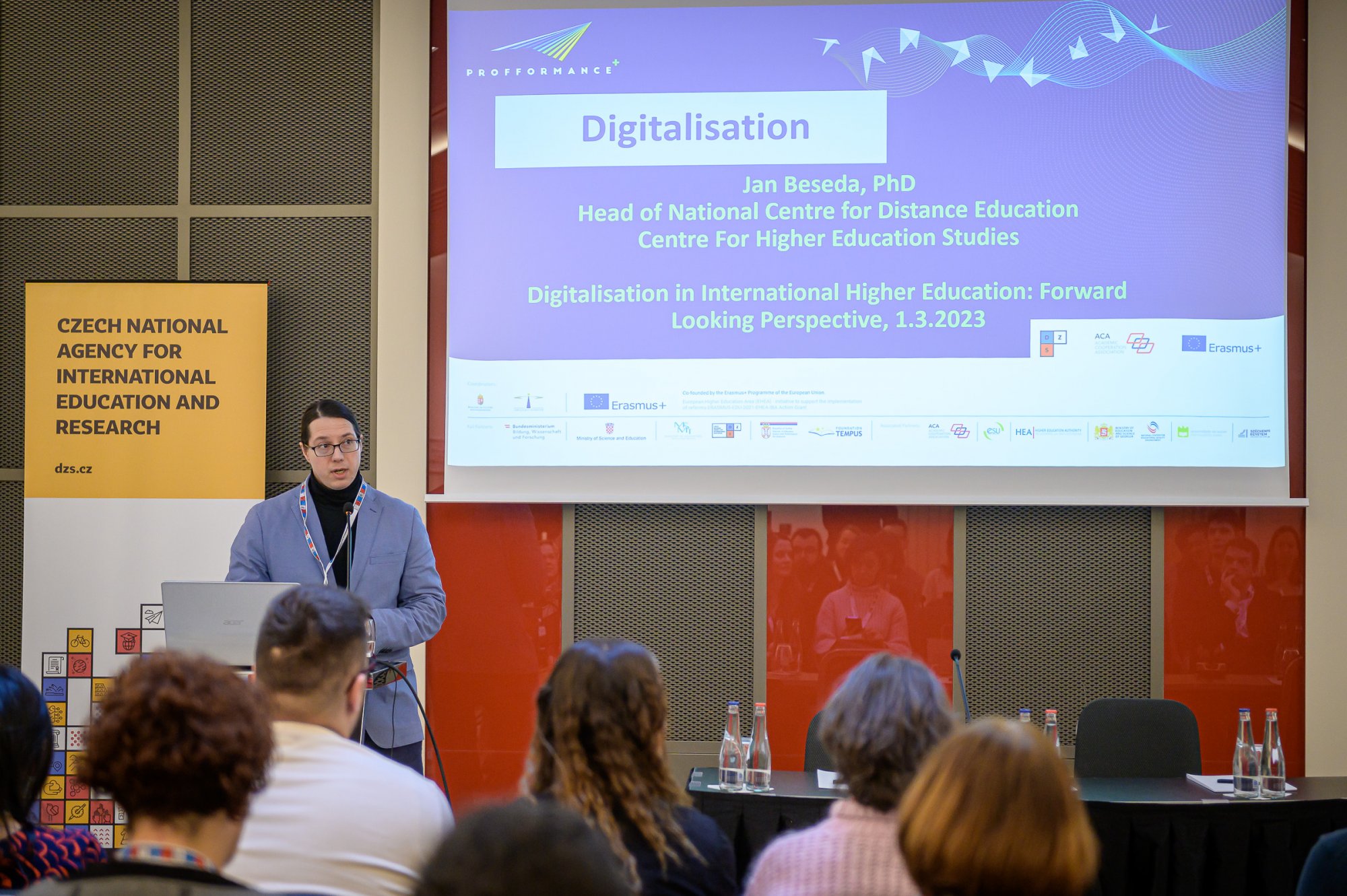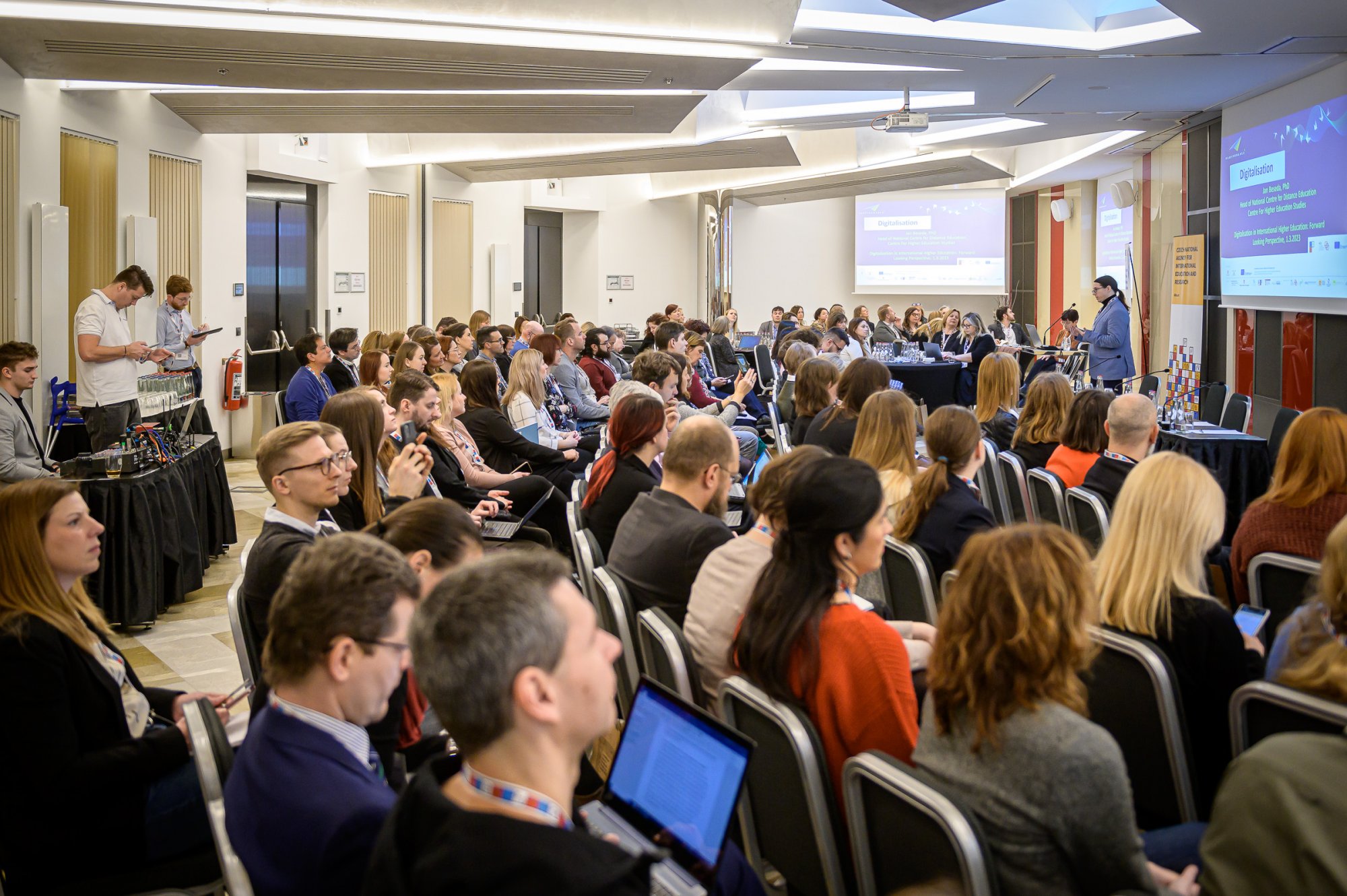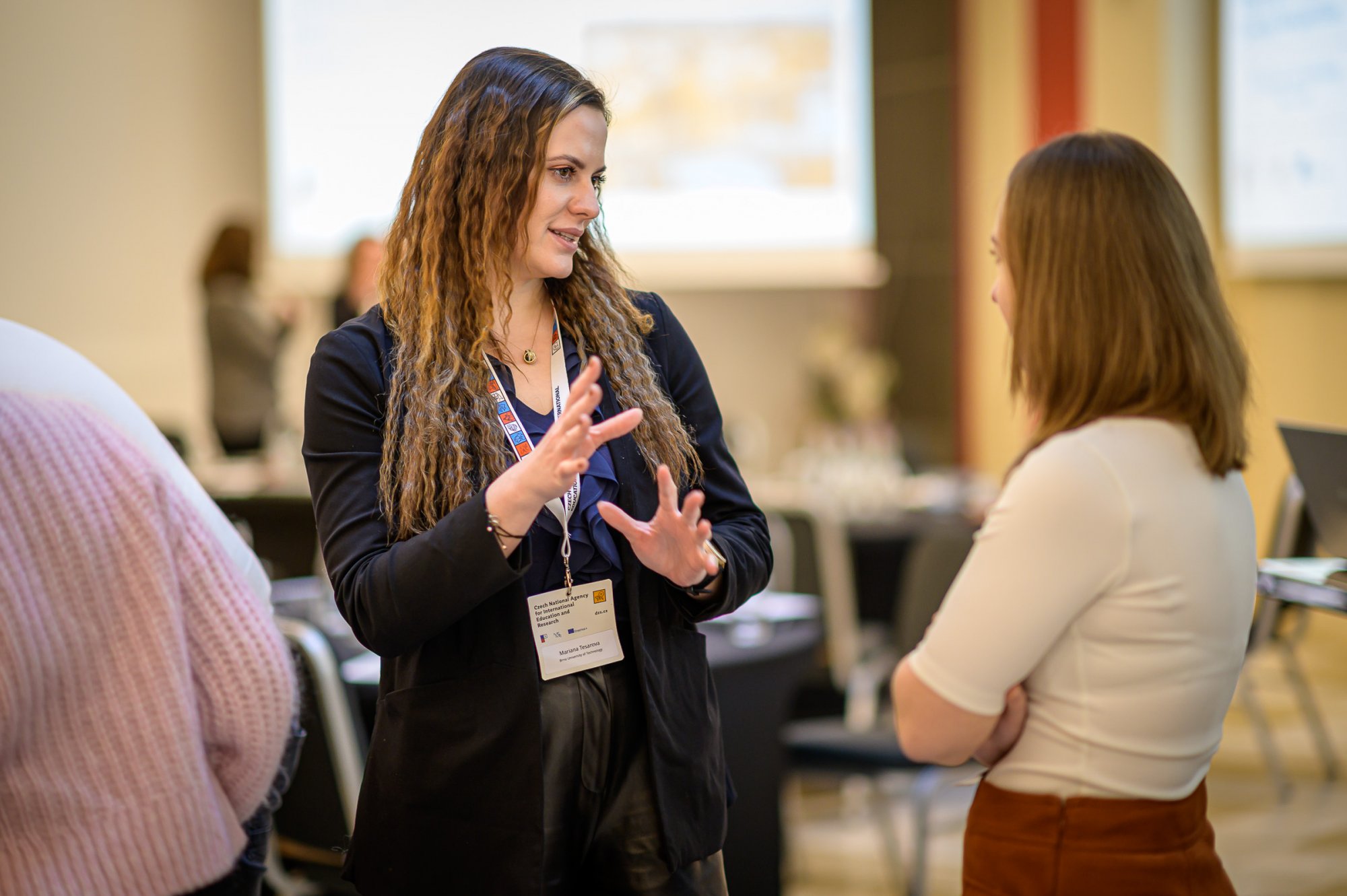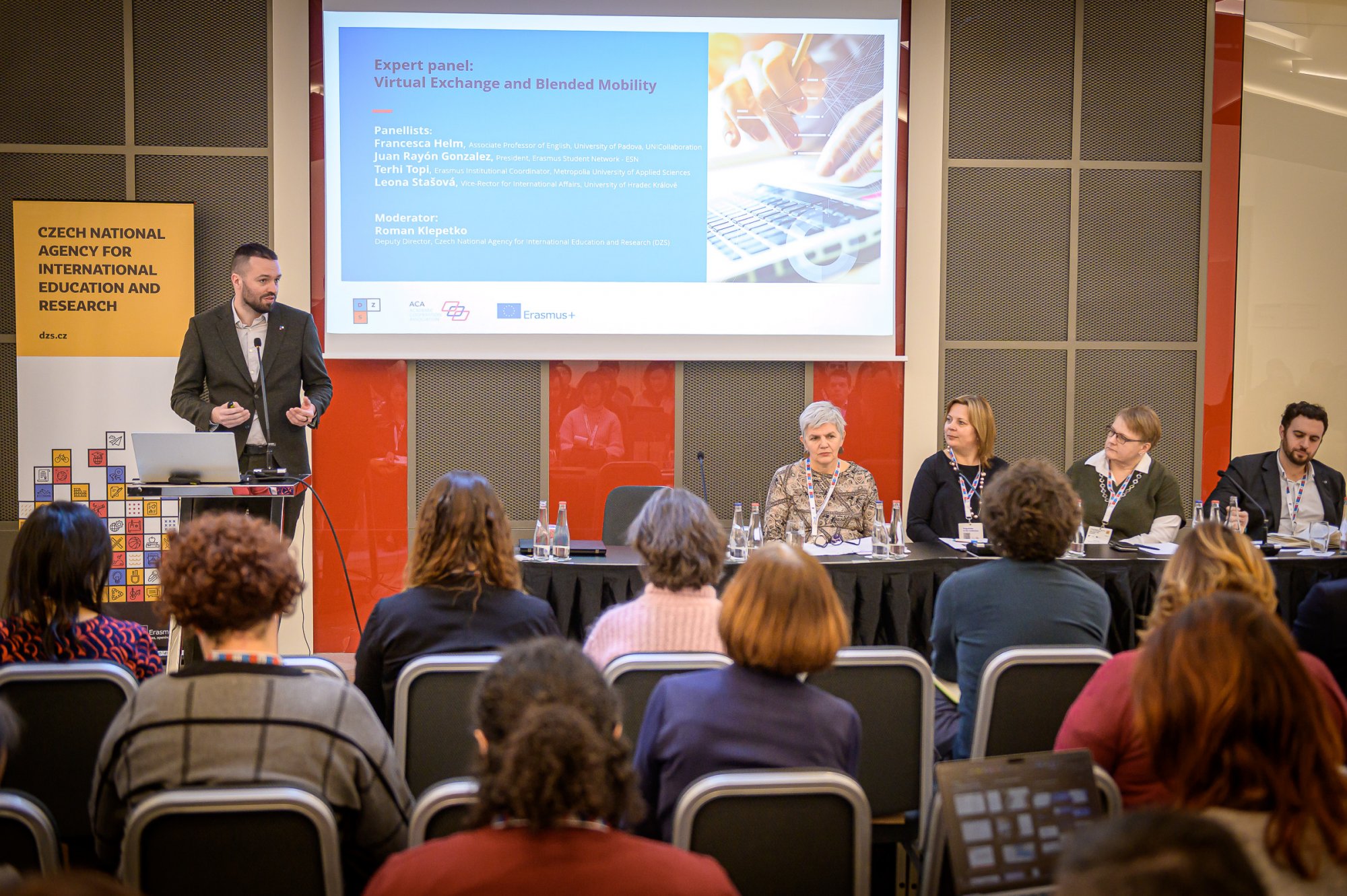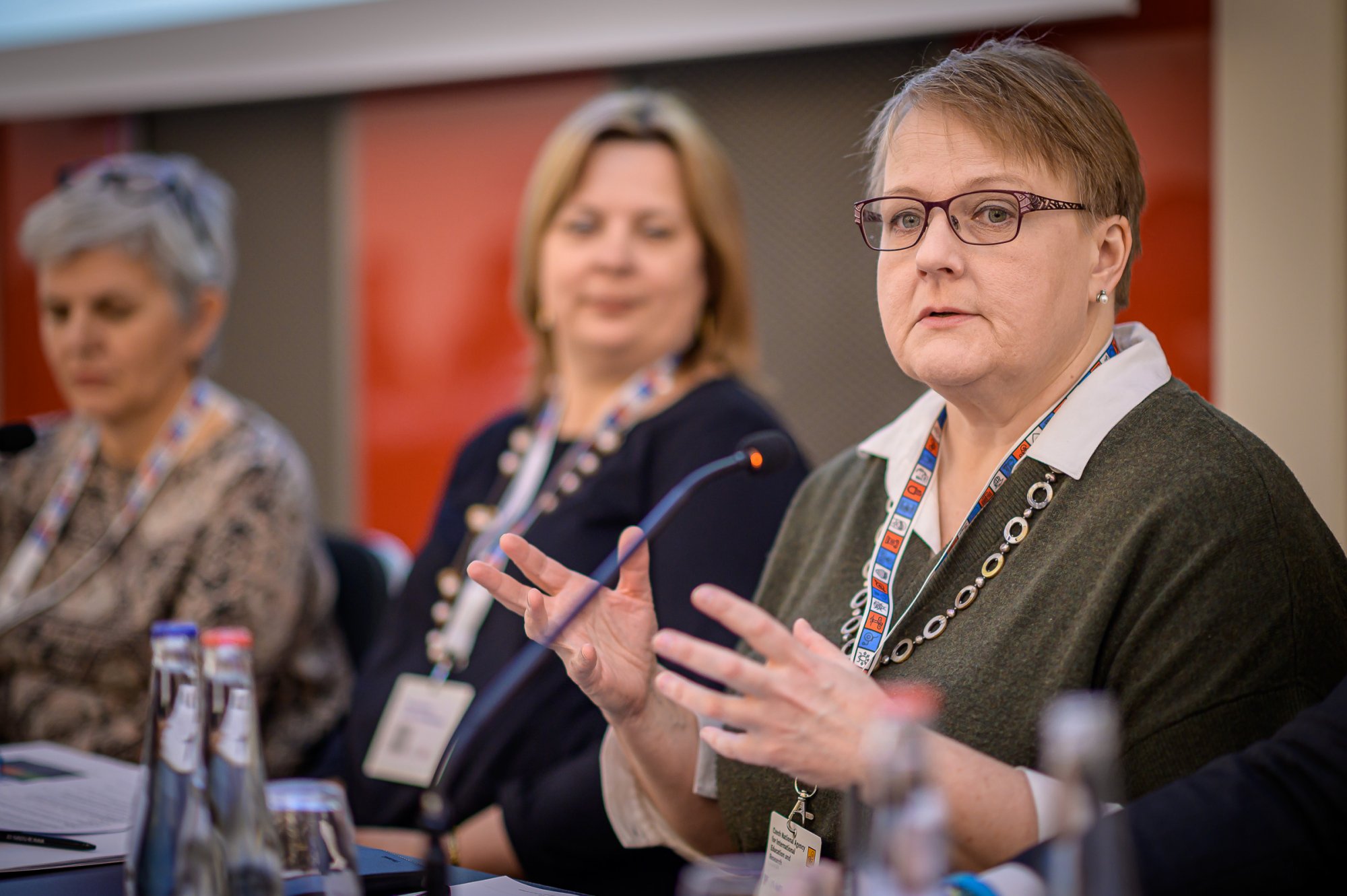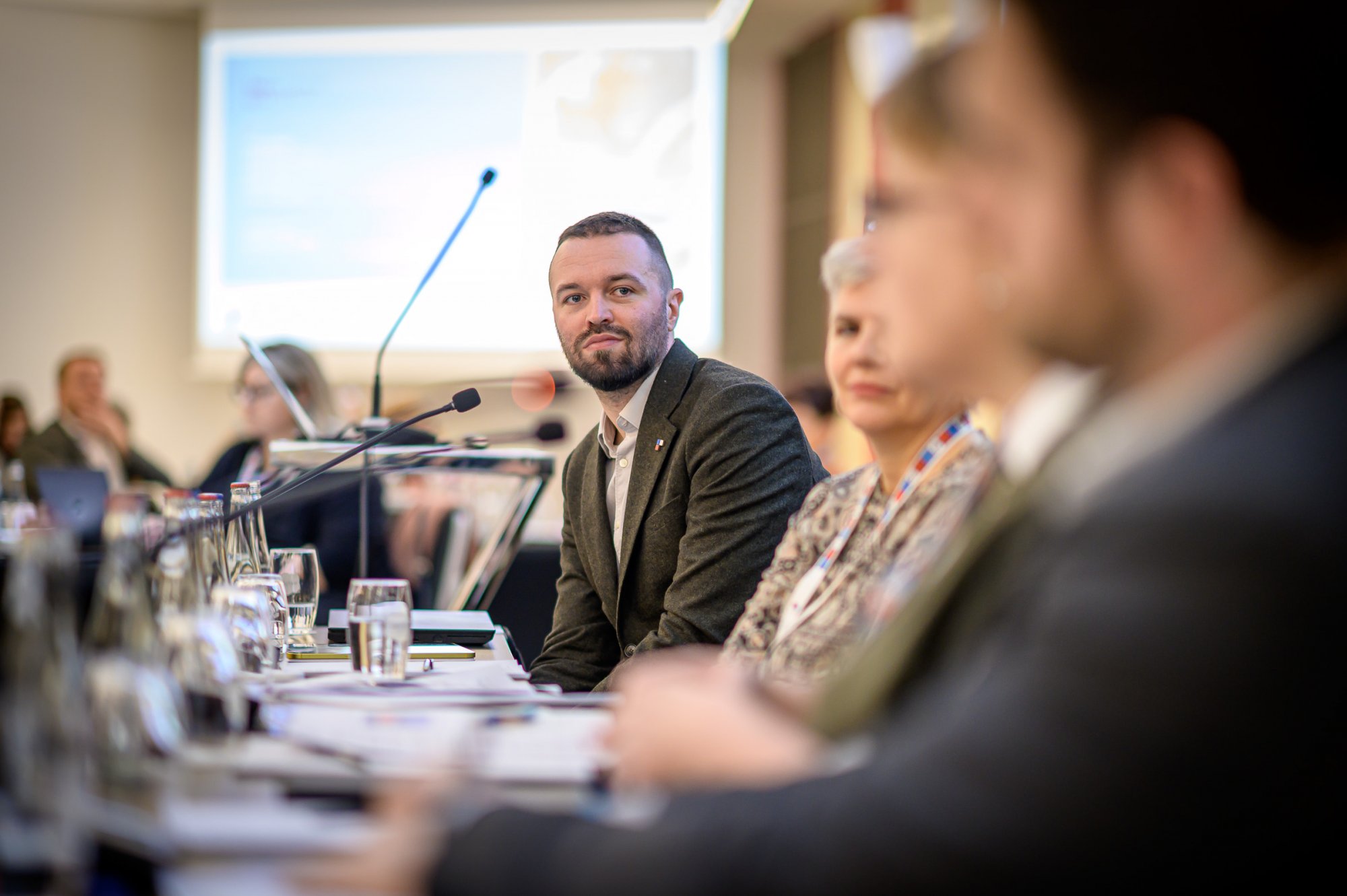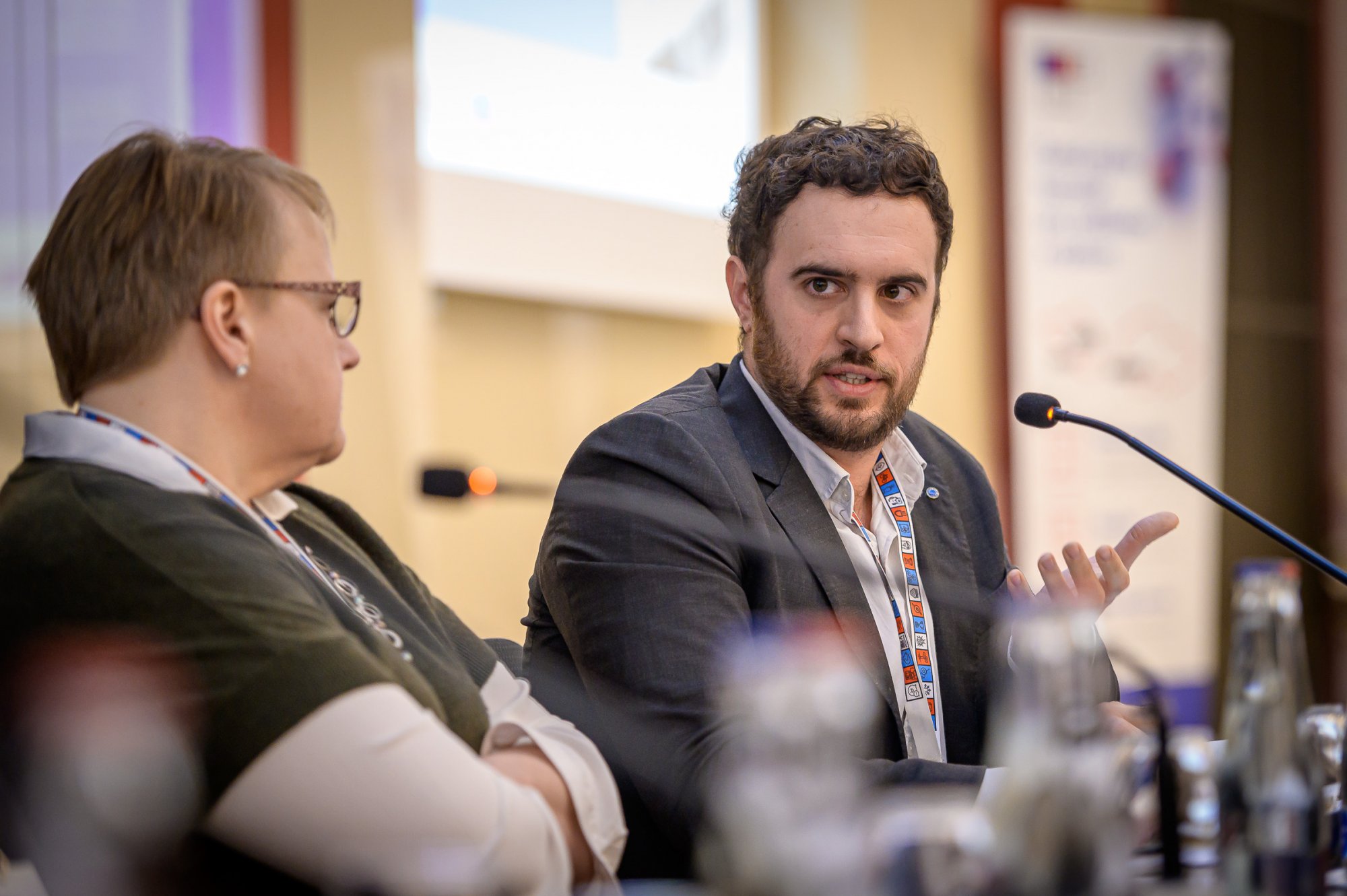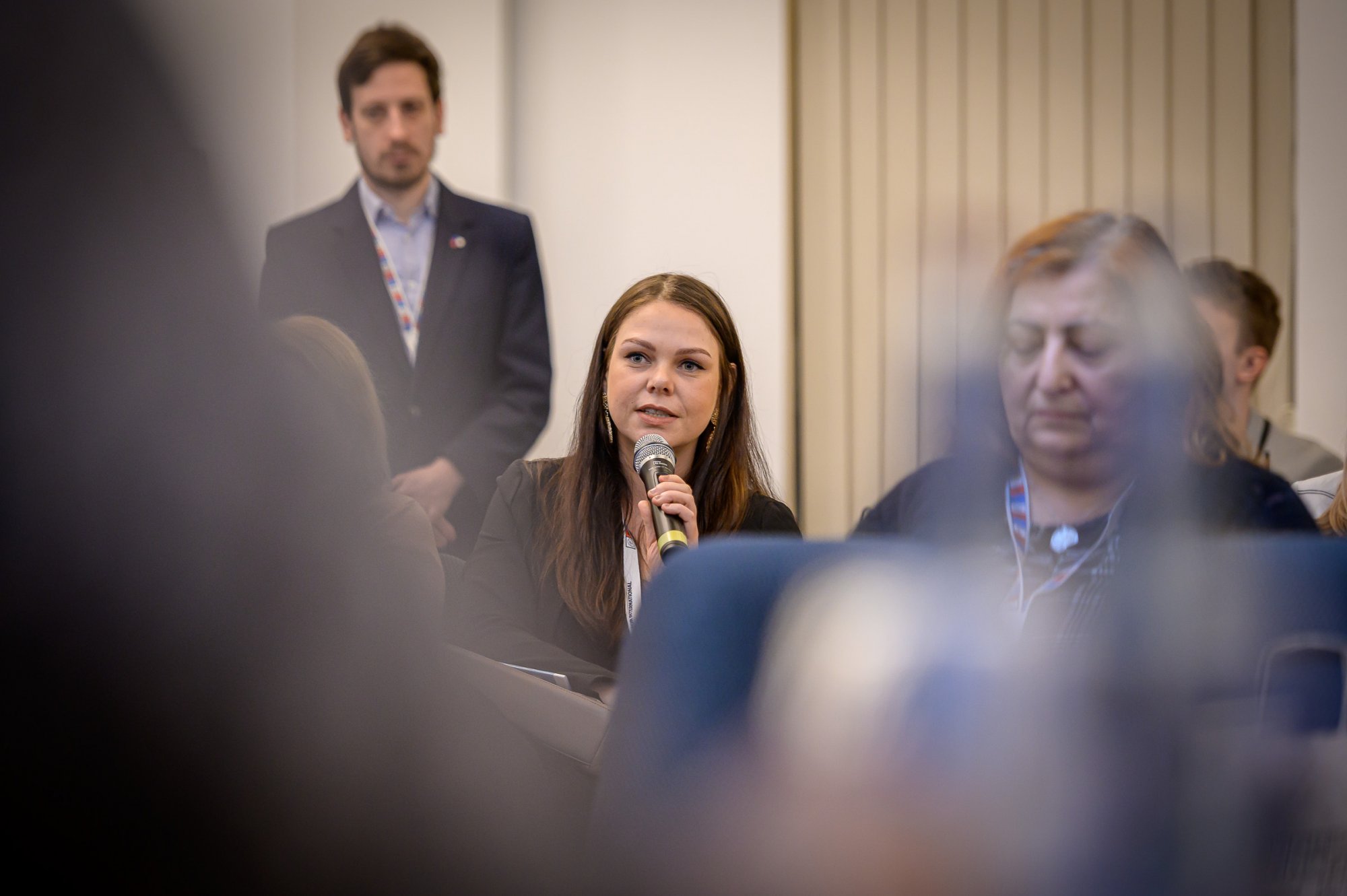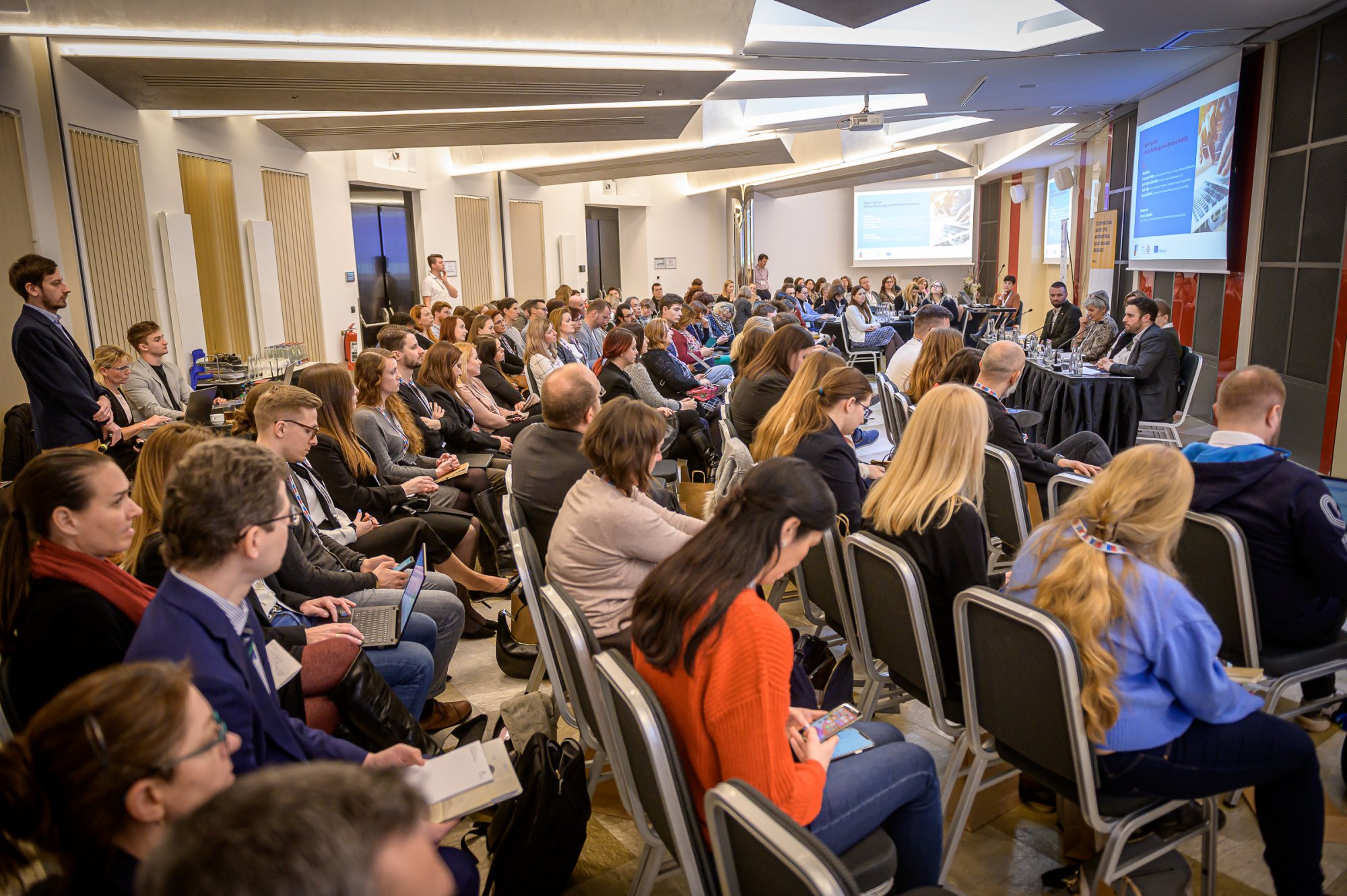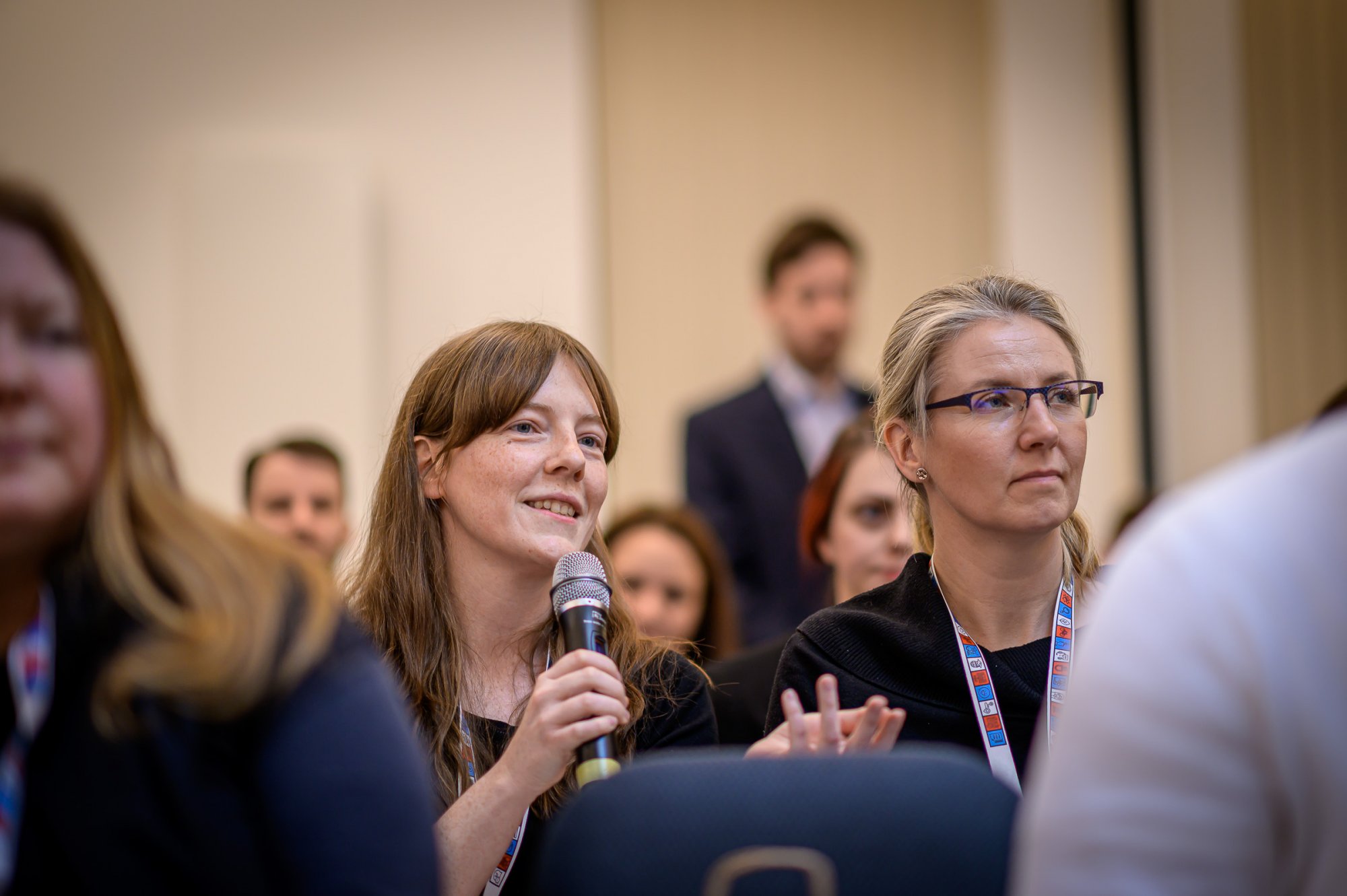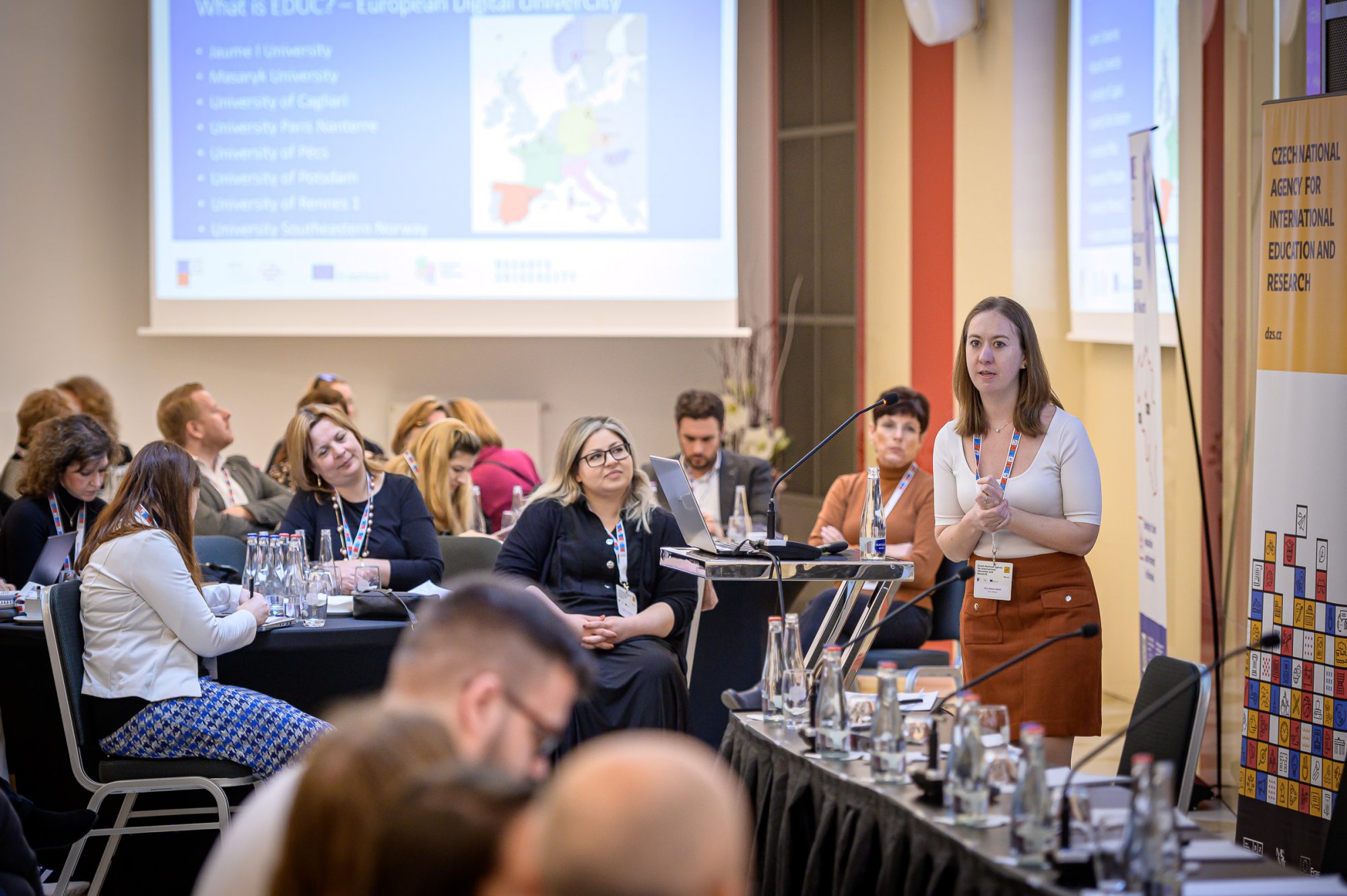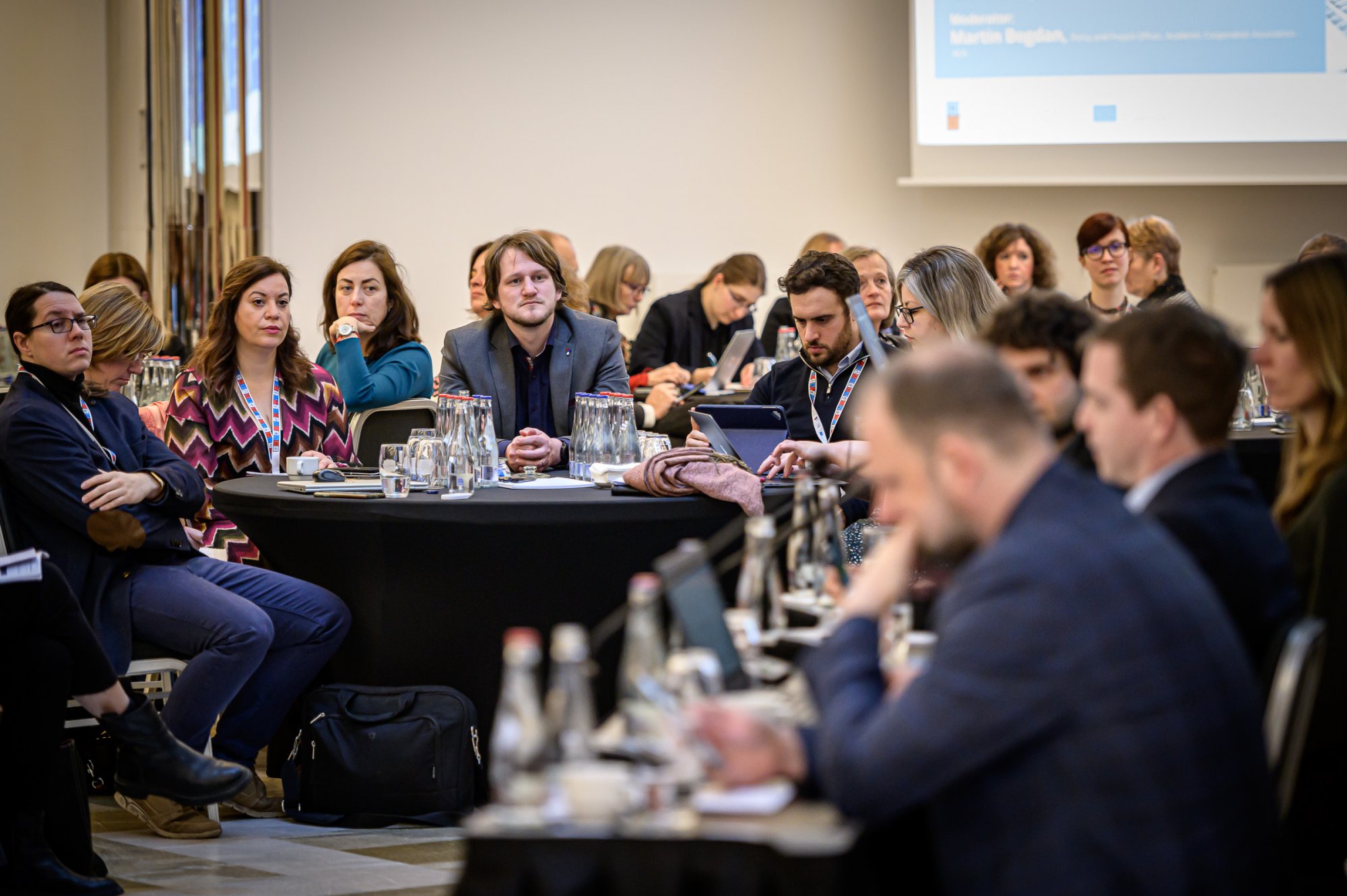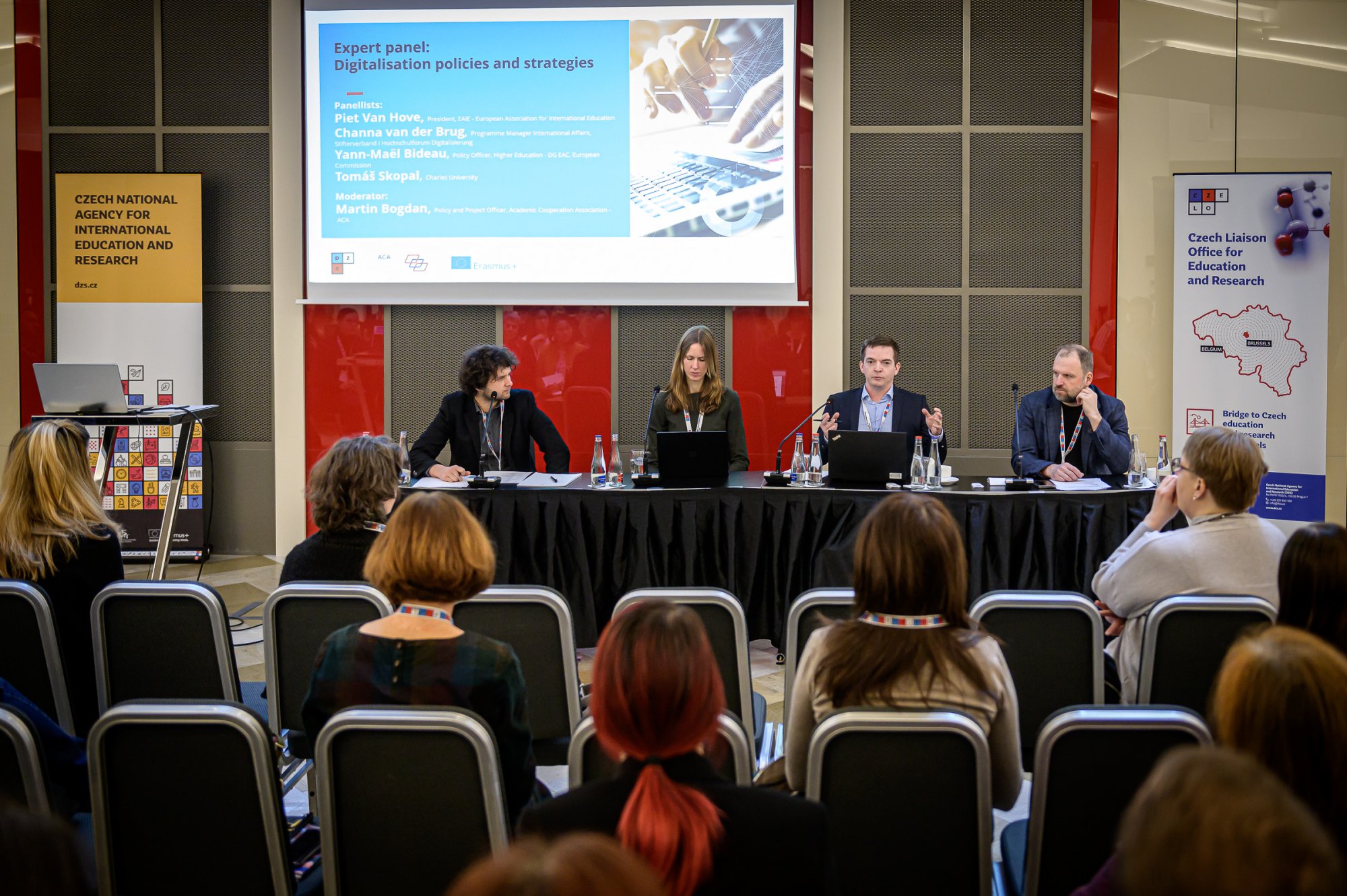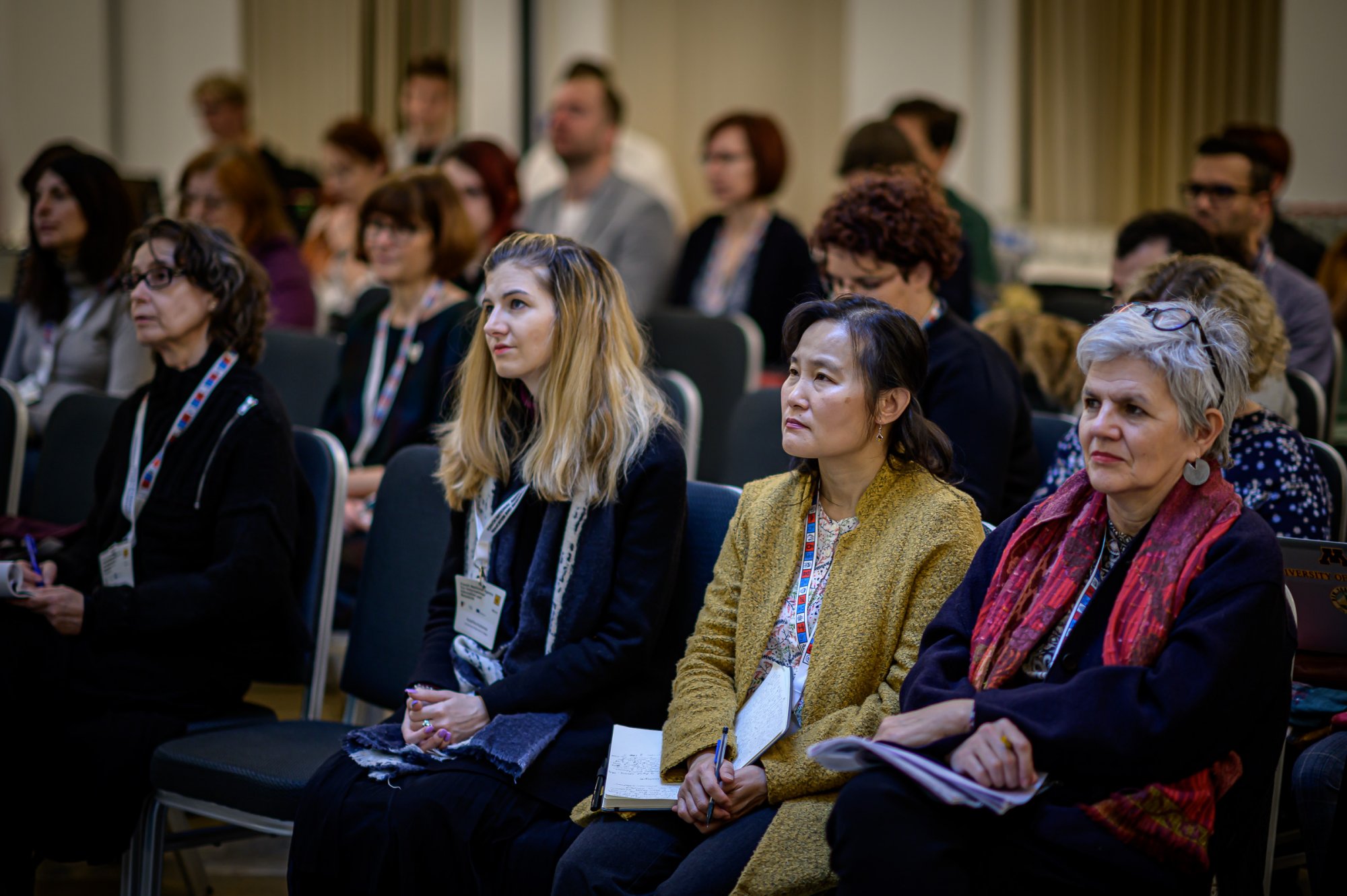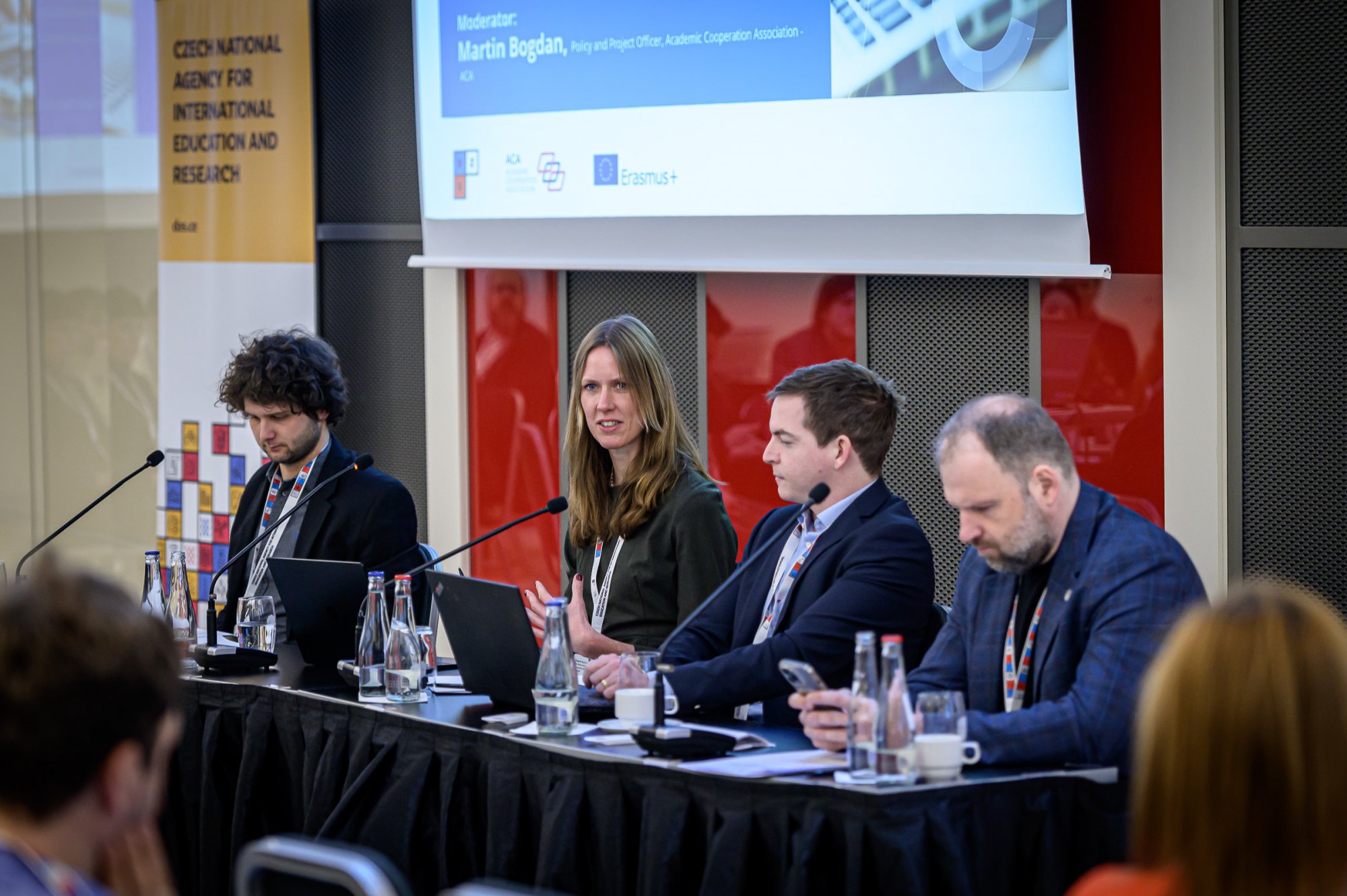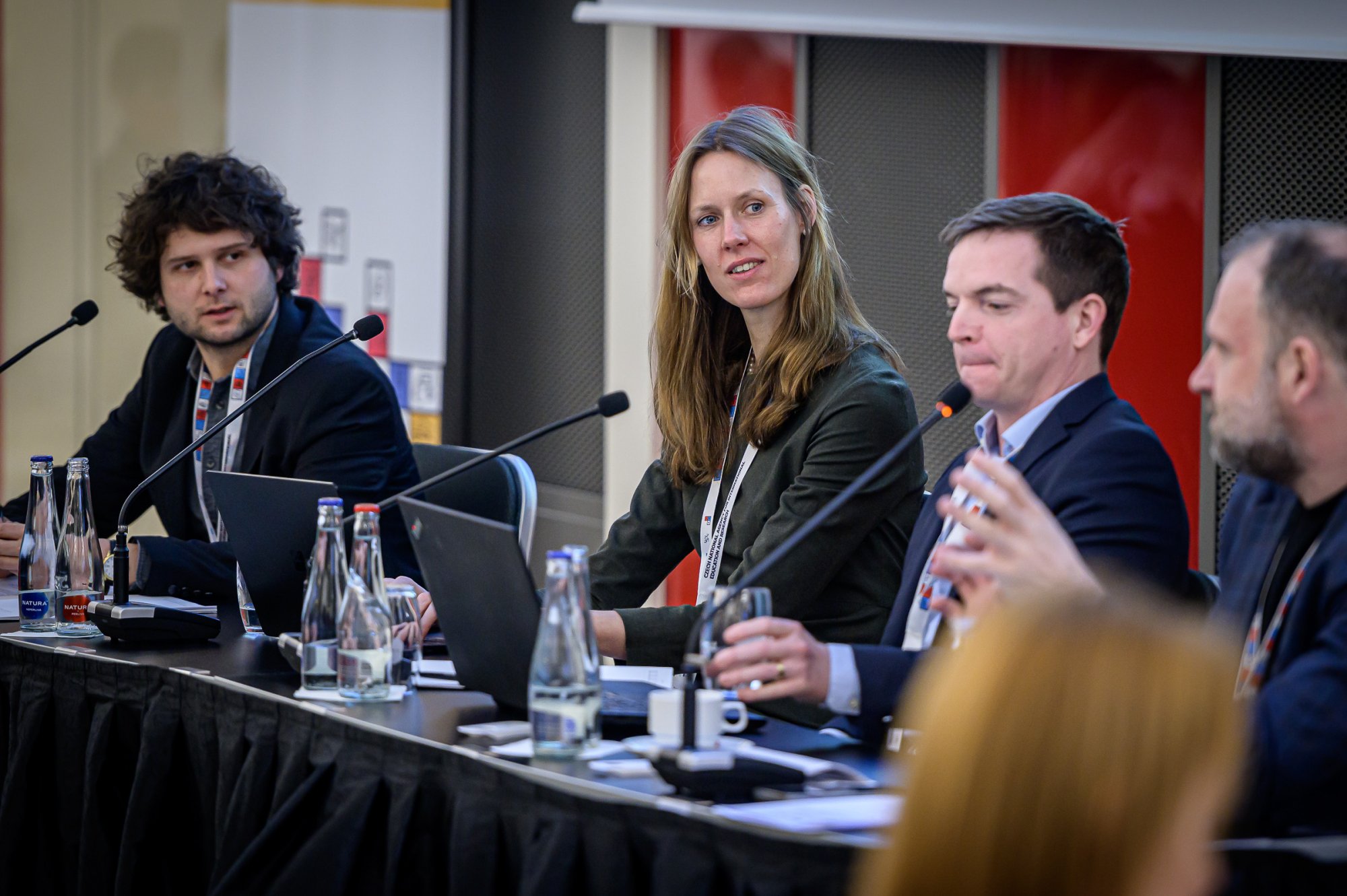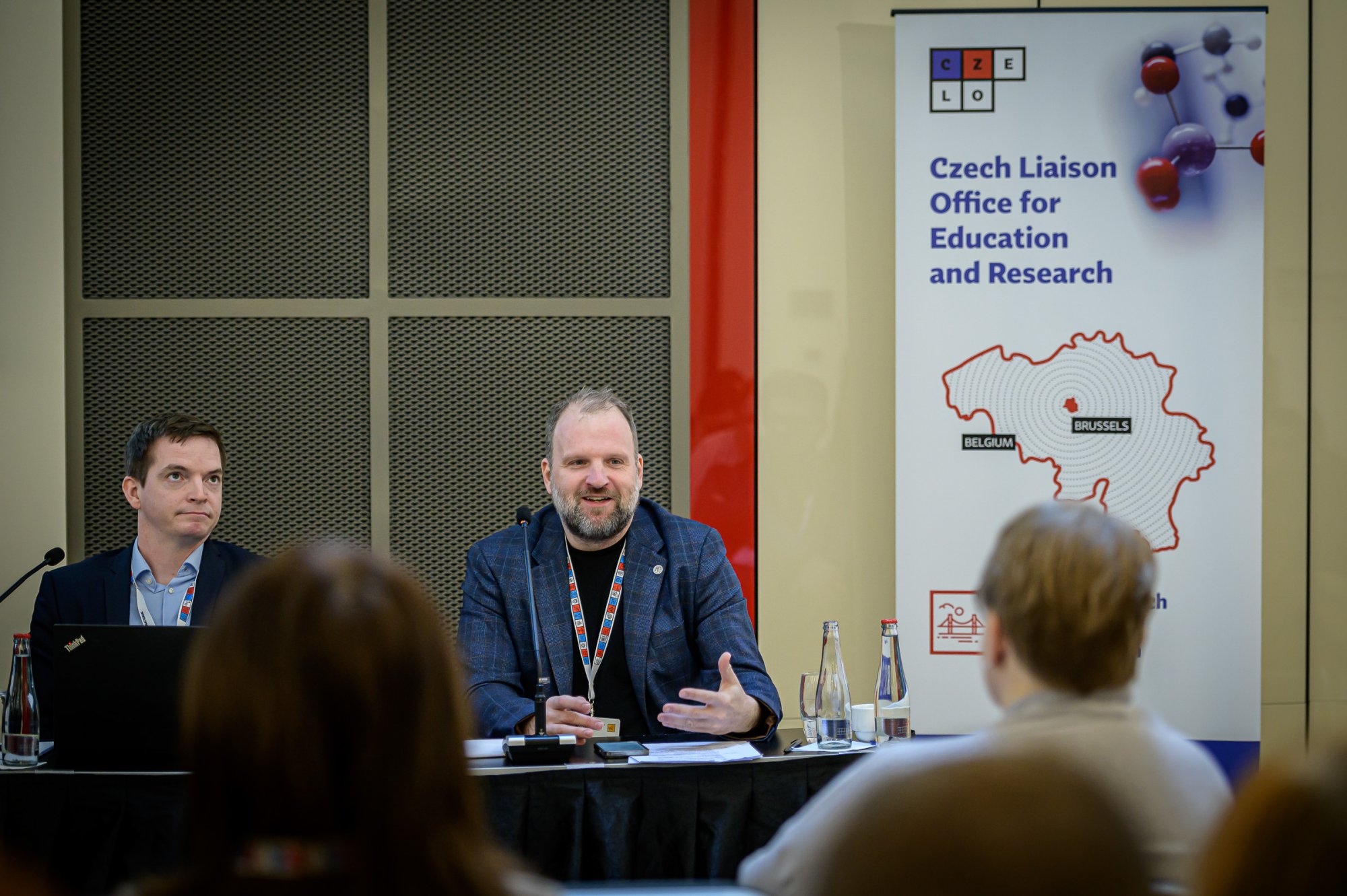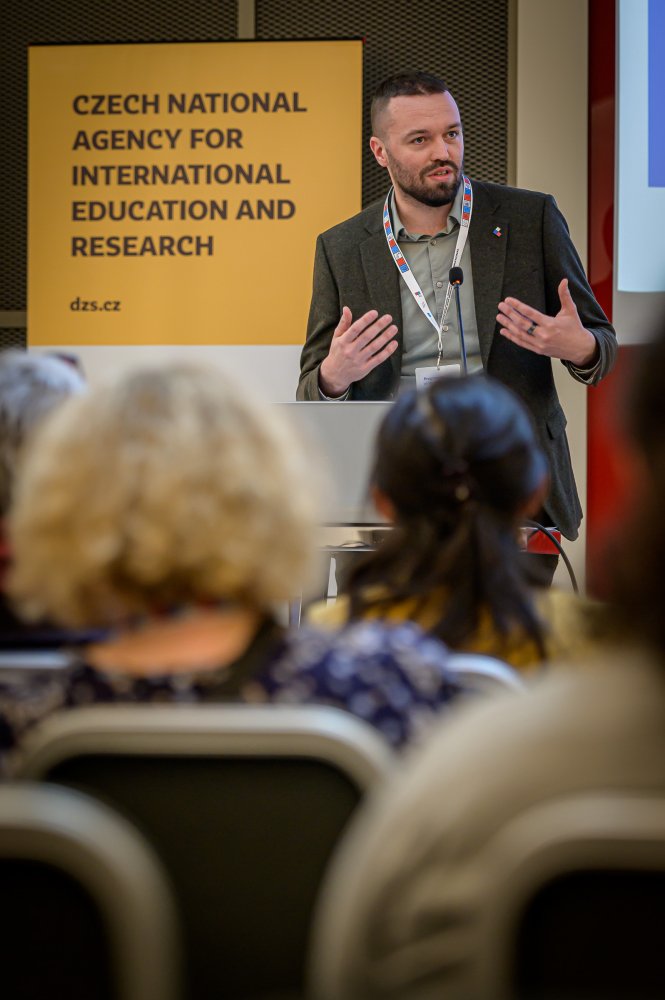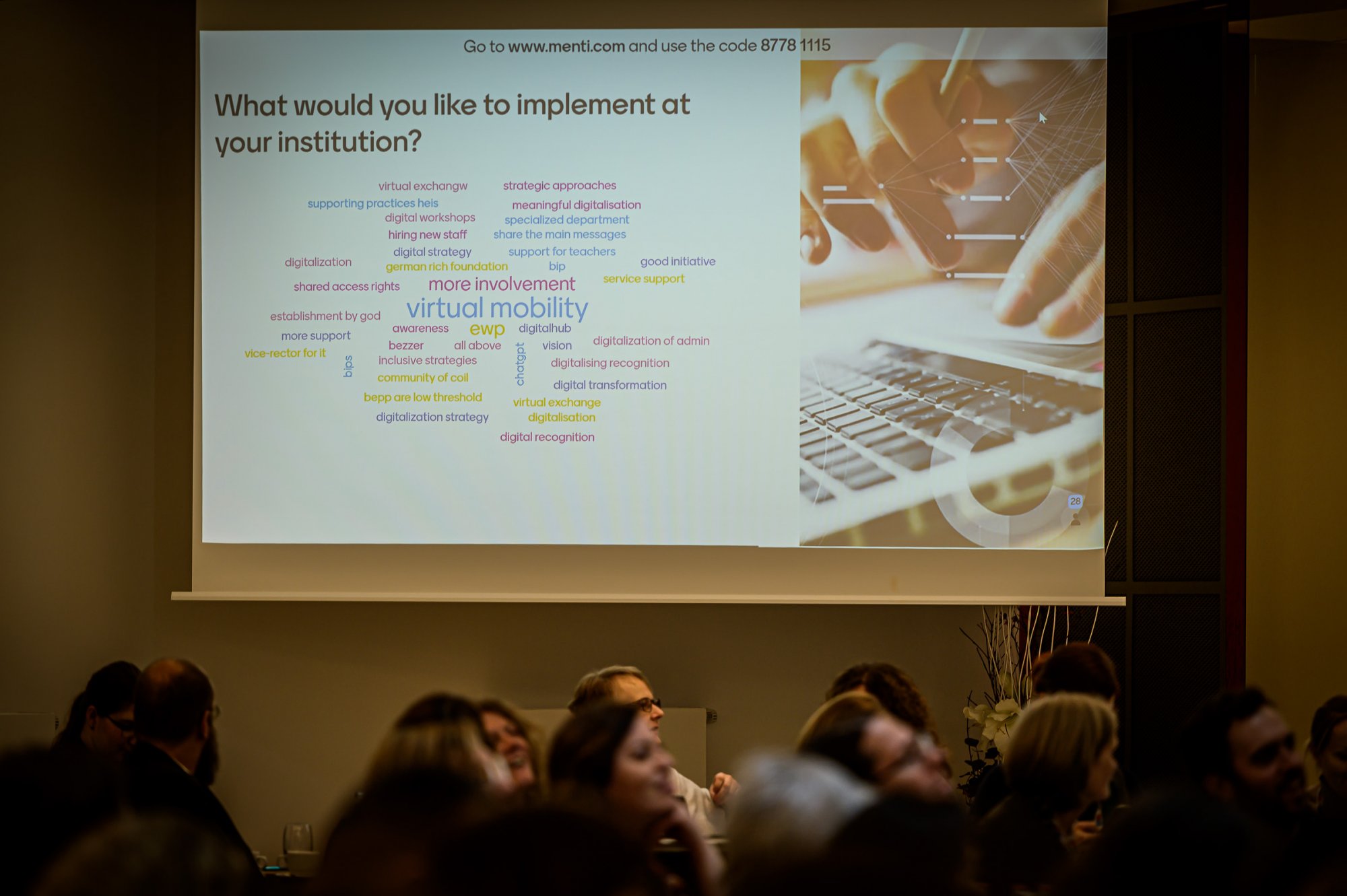What were the key takeaways from the international conference on digitalisation of higher education in Prague?
Over a hundred academics, policymakers and experts from Czechia and abroad debated the challenges of digitalisation.
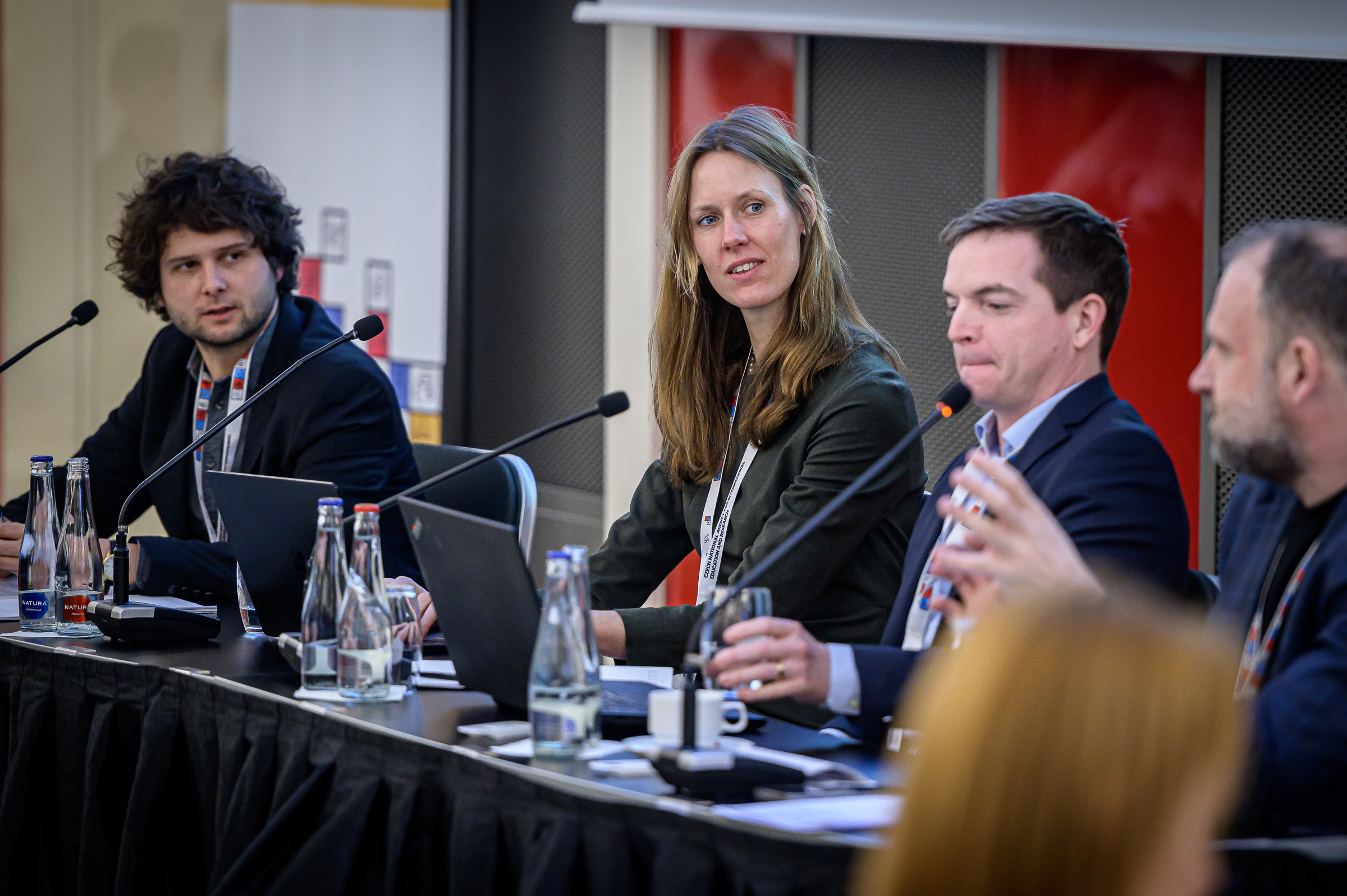
The conference entitled Digitalisation in International Higher Education: Forward Looking Perspectives, which we organised together with the Academic Cooperation Association (ACA) on 1-2 March, provided a platform for sharing good practices, ideas and experiences of experts in an increasingly important area.
"International higher education has had to face several unprecedented situations in recent years, and the field of digitalisation has played a crucial role in all of them. First, the covid-19 pandemic has forced us into rapid digitalisation. The tools we learned to use at that time subsequently helped us during the war in Ukraine when we integrated thousands of pupils, students, teachers and academics from Ukraine into our education systems. The latest digital technologies, such as the now much-discussed ChatGPT artificial intelligence, can contribute to equality in education, but only if they are fully democratised. Otherwise, it could exacerbate further inequalities in education. And it is precisely the cooperation between universities, public institutions and countries across Europe that can contribute to their effective use," said Michal Uhl, Director of the Czech National Agency for International Education and Research (DZS), during the opening session of the conference.
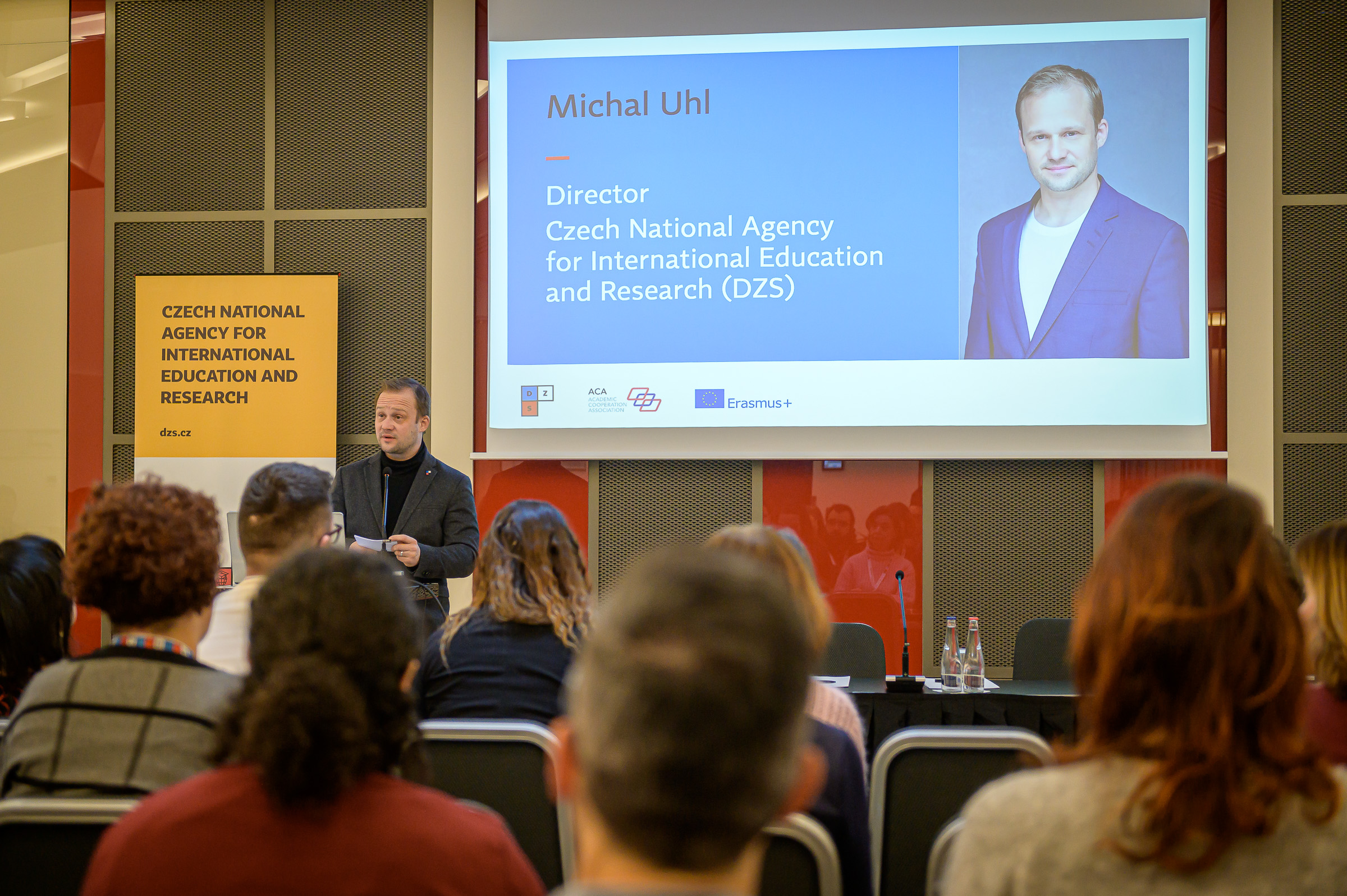
Digitisation is also a great opportunity to make the process of internationalisation of higher education itself more efficient, Michael Hörig, Director of the Brussels office of the German academic agency DAAD, stressed in the following lecture. However, there is a need to align individual national policies on digital education and research at an international level, to which cooperation platforms such as the European Digital Education Hub can contribute. However, the obstacles to the implementation of technology in educational practice lie not just in poorly conceived or completely absent strategies; the issue is often more trivial. As another keynote speaker on the first day, Jan Beseda of the research institution Centre for Higher Education Studies, reminded us the problem is often in the classrooms themselves, which meet 19th-century pedagogical standards and are thus not compatible with 21st-century educational tools.
The area of digitalisation in education, which has undergone one of the most dynamic transformations in the pandemic, is certainly the world of virtual exchanges and blended mobilities. The questions of their benefits for students and teachers and the right approach and use were addressed by representatives of the university and student world in an expert panel discussion. They agreed that while virtual mobility can by no means replace physical mobility, on the other hand, digital tools used primarily for distance learning or mobility could and should be used by universities in their everyday operations. In her presentation, Programme Manager Erin Anna Smith from the European University Alliance EDUC showed what specific tools and practices worked during the blended mobilities.
The second key area in the relationship between digitalisation and education is the digitisation of administrative processes, which was also the main theme of the afternoon panel. Representatives from the European Students' Union, the European Commission and The SURF cooperative, a Dutch education and research association, discussed two perspectives on how to view the issue of digitalisation of administration - student and lecturer. While students, according to Katrin Sproge (European Students' Union), face a deluge of different systems and initiatives and often get lost in it, lecturers, in turn, according to Evelien Renders (The SURF cooperation), face a lack of cooperation between IT and international departments at their institutions. Wolfgang Radenbach, Head of Digitization in Studies and Teaching, University of Göttingen, showed how the digitalisation of the course recognition process between German universities is taking place in his presentation.
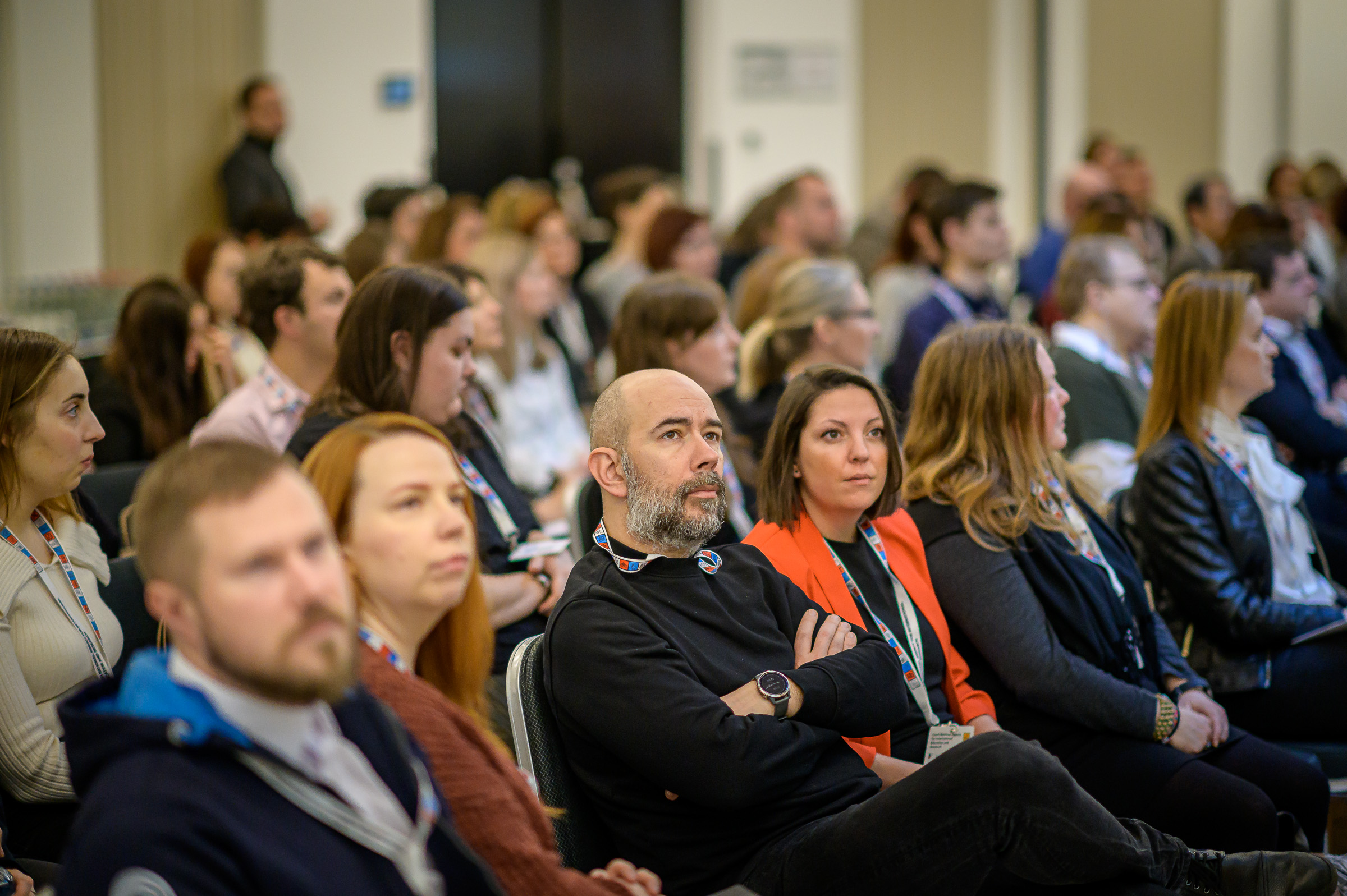
The second half of the conference was devoted to the third big topic, the digitisation policies and strategies themselves. The panel featured the president of the EAIE association Piet Van Hove, Channa van der Brug from the educational consultancy initiative Stifterverband, Tomas Skopal from the Department of Software Engineering at the Faculty of Mathematics and Physics, UK, and Yann- Maël Bideau from the European Commission's DG EAC. The debate resonated with a common view on the need to equip students and teachers with the necessary digital competencies to meet the demands of the modern world, which will not be achieved without coherent national and European strategies. The current ones tell us how to regulate processes rather than helping us to implement digitalisation in education. As an example of good practice in the field of digitalisation strategy, the presentation by Regina C. Brautlacht from the University of Bonn-Rhein-Sieg.
"Although the covid-19 pandemic presented a huge challenge to the entire society and the international higher education community, we gained one major advantage from this event. We are prepared for unforeseen situations. We have strengthened our competencies and learned to use tools that now allow us to respond flexibly. We are able to continue teaching even in times of crisis, such as the recent earthquakes in Turkey and Syria, we can handle administrative processes easily, and we are aware of the need to approach the topic of digitalisation conceptually and strategically at the European level. I think it is great to see how quickly students, teachers and academics are learning to work with digital tools and how digitalisation in education is increasingly becoming the norm and standard. At the same time, digitisation should not be a mere goal of education, but rather a means of international cooperation in education for all," summarised Roman Klepetko, Deputy Director, Head of Higher Education and Lifelong Learning Division at DZS, this year's conference on digitalisation.
The next ACA conference will take place in Slovenia on 7-9 June and will further focus on the digitisation of learning.

FOTO: Petr Zewlakk Vrabec
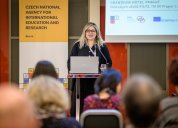
FOTO: Petr Zewlakk Vrabec
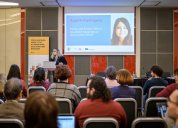
FOTO: Petr Zewlakk Vrabec

FOTO: Petr Zewlakk Vrabec
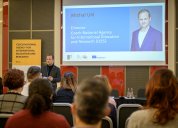
FOTO: Petr Zewlakk Vrabec

FOTO: Petr Zewlakk Vrabec

FOTO: Petr Zewlakk Vrabec

FOTO: Petr Zewlakk Vrabec

FOTO: Petr Zewlakk Vrabec
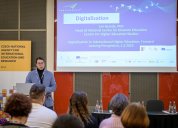
FOTO: Petr Zewlakk Vrabec

FOTO: Petr Zewlakk Vrabec

FOTO: Petr Zewlakk Vrabec
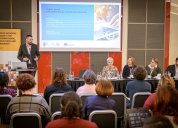
FOTO: Petr Zewlakk Vrabec

FOTO: Petr Zewlakk Vrabec

FOTO: Petr Zewlakk Vrabec

FOTO: Petr Zewlakk Vrabec

FOTO: Petr Zewlakk Vrabec
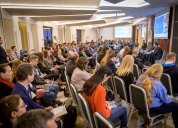
FOTO: Petr Zewlakk Vrabec

FOTO: Petr Zewlakk Vrabec
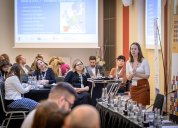
FOTO: Petr Zewlakk Vrabec

FOTO: Petr Zewlakk Vrabec

FOTO: Petr Zewlakk Vrabec

FOTO: Petr Zewlakk Vrabec

FOTO: Petr Zewlakk Vrabec

FOTO: Petr Zewlakk Vrabec

FOTO: Petr Zewlakk Vrabec

FOTO: Petr Zewlakk Vrabec
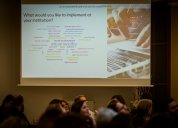
FOTO: Petr Zewlakk Vrabec

